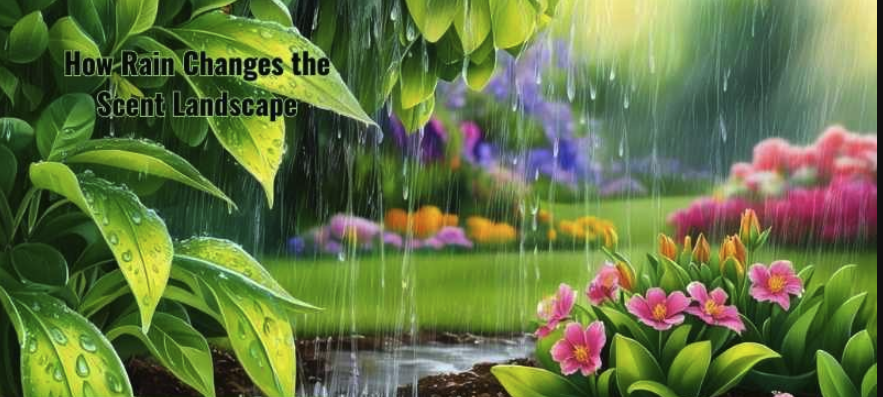
What Causes the Air to Smell Nice After it Rains?

It’s a smell that anyone with a working olfactory system will immediately recognize: the smell of fresh rain. What happens after a new rainstorm to make the air smell so pleasant? It all comes down to plants and a little chemistry.
The pleasant odor after a rain is called “petrichor”. It comes from the Greek words “petra”, which means “stone”, and “ichor”, which was the fluid that flowed in the veins of the mythological Greek gods. The term was first used by a pair of Australian scientists in 1964 as they studied the odor after a rain.
The scientists discovered that during a dry period, certain plants secrete oils that are absorbed into the soil and rocks. When the first rainstorm comes along after one of these prolonged dry periods, the oils are released into the air and combine with a substance called geosmin. This chemical is produced by a type of soil bacteria called actinomycetes when it produces spores. This makes the scent of petrichor, but how does the smell get into the air after a storm?
MIT scientists in 2015 used high-speed cameras to determine how the scent got into the air. When a raindrop lands on a porous surface, it traps tiny areas of air in the raindrop. These air pockets travel up and burst from the drop’s surface, releasing microscopic particles called aerosols. It’s believed these aerosols, when dispersed by the wind, are what enable us to smell the pleasant odor after a rain.
But that’s not the end of the smelly story. Lightning can split oxygen and nitrogen molecules during a thunderstorm, and these molecules will commonly form nitric oxide. Nitric oxide then combines with other chemicals to form ozone, another odor you can smell in the air.
Why do we find this particular odor so pleasing, then? It may come down to evolution. Scientists hypothesize that the smell after rain has been passed down by our ancestors, who relied on this signal to survive. Plants grew, animals were healthy when it rained, which allowed people to eat. This association may have been hardwired into our brains. Now think about that the next time you get a good whiff of petrichor.
Sources: Smithsonian Magazine, Wikipedia, Live Science (1), Live Science (2)